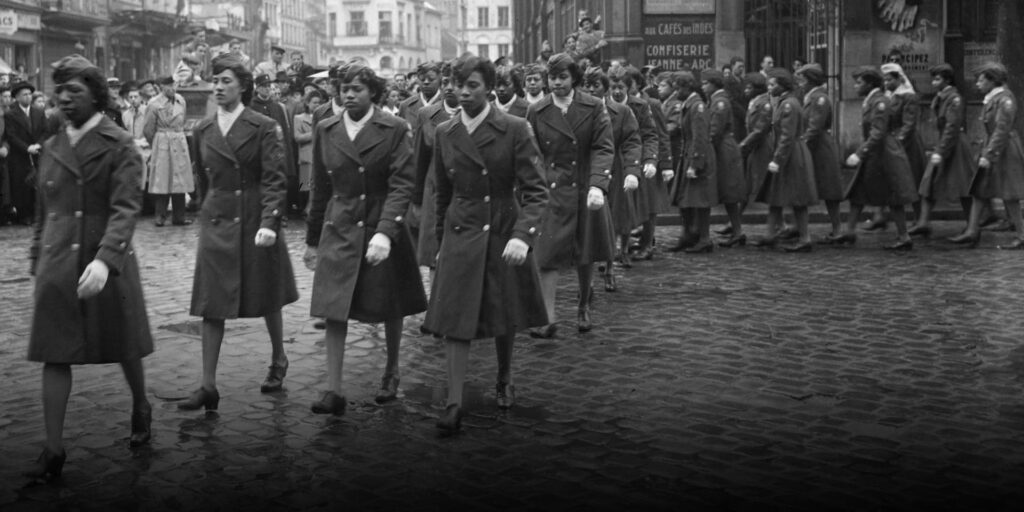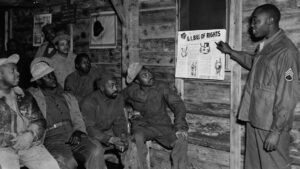Articles

MEMORIAL DAY
An army unit known as the “Six Triple Eight” had a specific mission in World War II: to sort and clear a two-year backlog of mail for Americans stationed in Europe. Between the Army, Navy, Air Force, the Red Cross and uniformed civilian specialists, that amounted to seven million people waiting for mail.
 And the responsibility to deliver all of it fell on the shoulders of 855 African-American women.
And the responsibility to deliver all of it fell on the shoulders of 855 African-American women.
From February 1945 to March 1946, the women of the 6888 Central Postal Directory Battalion distributed mail in warehouses in England and France. Because of a shortage of resources and manpower, letters and packages had been accumulating in warehouses for months.
Part of the Women’s Army Corps, known as WACs, the 6888 had a motto, “No mail, low morale.” But these women did far more than distribute letters and packages. As the largest contingent of Black women to ever serve overseas, they dispelled stereotypes and represented a change in racial and gender roles in the military.
When the United States entered World War II after the bombing of Pearl Harbor, there was no escaping the fact that women would be essential to the war effort. With American men serving abroad, there were countless communications, technical, medical and administrative roles that needed to be filled. The Women’s Army Corps—originally created as a volunteer division in 1942 until it was fully incorporated into the army by law in 1943—became the solution.
Source: History.com
Releated Posts

The GI Bill’s Effect on Black Veterans
From the start, Black veterans had trouble securing the GI Bill’s benefits. Some could not access benefits because they had not been given…

How the GI Bill’s Promise Was Denied to a Million Black WWII Veterans
When Eugene Burnett saw the neat tract houses of Levittown, New York, he knew he wanted to buy one. It was 1949, and he was ready to settle down in a larger home with…

The Tragic, forgotten history of black military soldiers
In the week after the election, the Equal Justice Initiative, of Montgomery, Alabama, released a new report—a fifty-three-page addendum to last year’s “Lynching in America,” an unprecedentedly…


